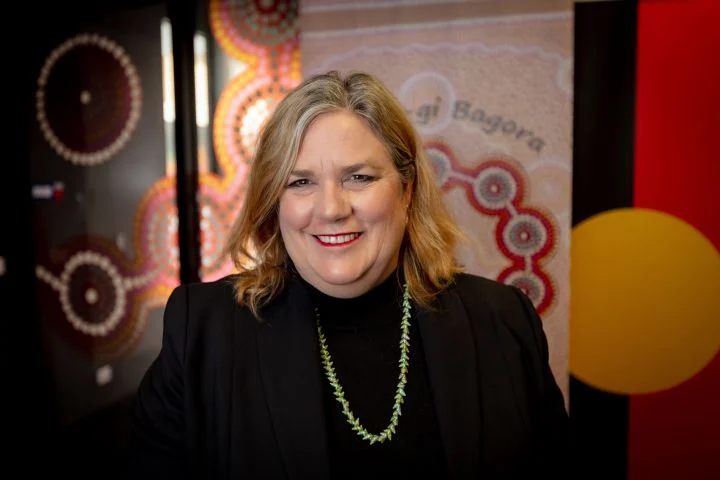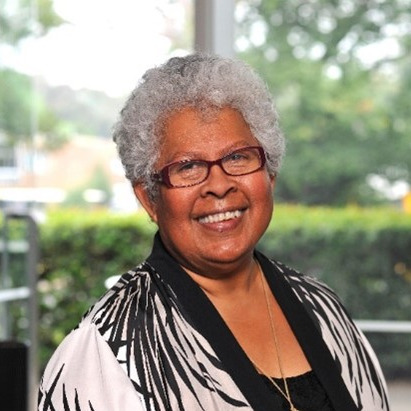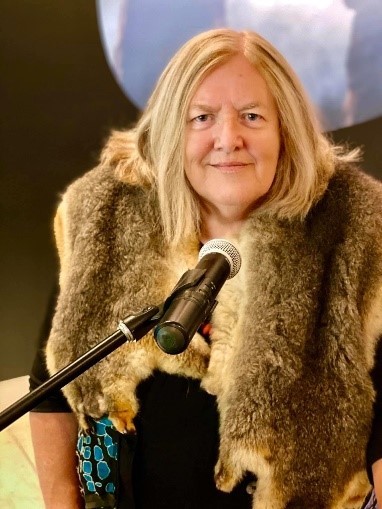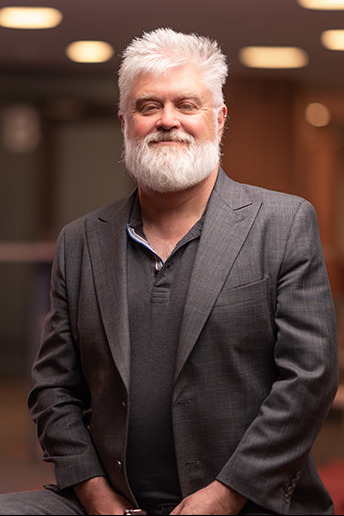Onemda: Aboriginal and Torres Strait Islander Health and Wellbeing

Welcome to Onemda: Aboriginal and Torres Strait Islander Health and Wellbeing
Onemda: Aboriginal and Torres Strait Islander Health and Wellbeing is an Indigenous group specialising in public health with a focus on research and teaching aimed at improving health and wellbeing outcomes in Australia and elsewhere through partnerships and collaborations and strong ethical foundations.
-
Welcome
Prof Cath Chamberlain, Director
Explore -
Onemda Staff-Student Portal
Resources
Staff login - Tweets by Onemda
Our research uses advanced methods in .....
-
Research Themes
Our research is encompassed within several broad research themes. This multidisciplinary approach aims to increase the opportunities for researchers to collaborate on projects that span common themes.
View -
Research Groups
An overview of the research interests within the school and the project work being carried out by our research groups.
View -
Graduate Research
We are passionate about the training and mentoring of the next generation of scientists. A range of research degrees are offered at Master and Doctorate level.
View
Onemda Scholars
A list of students who received the Aunty Angela Clarke or Aunty Joan Vickery Scholarships
Whether you're just starting out or a seasoned professional, we have something to suit your needs and schedule. With the highest teaching evaluations in the Faculty of Medicine, Dentistry and Health Sciences we are proud to offer our coursework and short course programs to our leaders and future leaders.
-
Degrees
Our degrees, taught by our world-renowned academics are the perfect way to begin in population and global health.
View -
Short Courses
Our short courses are designed to keep you up to date with the latest research and information.
View -
Single subjects
Single subject study can be a stepping-stone to further qualifications or an upskilling opportunity. Develop knowledge and skills without the commitment of a full course from the School offering of over 50 subjects.
View -
Scholarships, Bursaries and Prizes
The Faculty of Medicine, Dentistry and Health Sciences offer an extensive range of scholarships and bursaries to undergraduate and postgraduate coursework students.
View

Student Placements
Work-integrated learning, including placement, provides career-defining experiences for students and is integral to many programs within
the Faculty of Medicine, Dentistry and Health Sciences.
Onemda Engagement
-
Podcast
The Deep End, hosted by Professor Marcia Langton and Professor Aaron Corn, is a podcast devoted to reasoned discussions and informed public debate with a diverse variety of engaging intellectuals and thought leaders
View -
Sacred Earth, Sacred Birth: Birthing on Country
Prepare: Mercy Perinatal. Professor Cath Chamberlain discusses the importance and logistics of "birthing on country" for Indigenous people. Alison Abboud is also joined by guest co-host, Professor Sue Walker AO, maternal fetal medicine sub-specialist at the Mercy Hospital for Women, and Co-Director of Mercy Perinatal.
View
Thank you for your interest in engaging with the Melbourne School of Population and Global Health. As a friend and supporter of the school, you can support ground-breaking research, help create scholarships for our students, build important partnerships and promote community engagement.
-
Alumni
Our pride in our graduates and in their lives spent improving the health and well-being of others is matched by our desire to maintain strong connections with all who have passed through our doors.
View -
Support
We are grateful for the many ways in which our alumni and donors support our work.
View -
Partners
We recognise partnerships and collaborations are an integral facet of our development and a major strength of the school.
View -
Community
The School aims to be of value to the community through its teaching, research and program implementation.
View
Job Opportunities with Onemda
Research Fellow/Enterprise Fellow – Indigenous Health Equity
This is an exciting new job opportunity for a senior research position to coordinate a newly funded MRFF project Relighting the Firesticks – which aims to accelerate diffusion of innovation to improve care and support for Aboriginal and Torres Strait Islander families in the first 2000 days.
Applications close: 17 March | Read more here | Enquiries: Professor Cath Chamberlain

Aunty Dr Doseena Fergie OAM
Aunty Dr Doseena Fergie OAM is an Aboriginal and Torres Strait Islander Elder descended through Wuthathi, Mabiauag Island and Ambonese ancestry. She lives on Boonwurrung Country in Victoria. A proud mother of three adult children and grandmother to four, she has a PhD in nursing research. As a registered nurse and midwife she has worked as an Aboriginal health team’s clinical coordinator in the Yarra Valley and lectured in Aboriginal health and culture at the Australian Catholic University (ACU). She was the Project Lead embedding Indigenous Knowing into ACU curricula. In 2020 Doseena became the first Aboriginal and Torres Strait Islander to be elected on the University Senate as an ACU Academic Senator. Prior to her retirement in 2021 she was her local government and health service’s Strategic Advisor for Aboriginal services.
She is the founding member of several Aboriginal community services in Melbourne. In 2016 she became a Churchill Fellow and the inaugural Fellow of the Congress of Aboriginal and Torres Strait Islander Nurses and Midwives (CATSINaM). Later in 2019 she was inducted into the CATSINaM Hall of Fame. She was recognised as Yarra Ranges Council’s “2017 Citizen of the Year”; inducted into the Victorian Roll of Honour for Women and in 2019 awarded an Order of Australia Medal in recognition for her work in community health; and in 2022 she received the Australian Physiotherapy Council Service (Pat Maher) Award.

Aunty Di Kerr OAM
Wurundjeri Elder Aunty Diane Kerr (OAM) has made a life-long contribution to her community in the areas of health, welfare, education and land rights.
As Europeans settled in Victoria, Aunty Di’s people were removed to Coranderrk Mission, a Victorian government reserve established near Healesville in 1863. Aboriginal people at Coranderrk were unable to speak their language or continue any of their traditional cultural practices. As Aunty Di reflected, ‘it was like being a refugee in your own country, they were in a place where one man controlled everything and they were punished if they spoke their own language.’
Born in Carlton in 1954, Aunty Di is inspired by the women in her family and has been motivated by the resilience of her mother, grandmother and great-grandmother. Her grandmother left Coranderrk to give birth to Aunty Di’s mother in the New South Wales bush. It was a time when the government was taking Aboriginal children away from their families, so many kept moving around to protect their children. Aunty Di’s mother’s name was Wolert, meaning possum, and for this reason Aunty Di wears her possum skin with pride for ceremonial activities. She is often called on to preside at Welcome to Country ceremonies on Wurundjeri land and finds that working on country makes her feel connected to her mother and grandmother: her words and actions are ‘always said or done in their honour’.
Aunty Di has worked in various fields including child care, education, native title, Stolen Generation support, and other community activities. She has been a mentor and foster carer for many Aboriginal children and young people. Her passion lies in the area of social and emotional wellbeing of Aboriginal communities. Since 2014 Aunty Di and her sister (Aunty Irene Morris) have been conducting women’s ceremonies for Aboriginal girls. The ceremonies enable the girls to approach womanhood with confidence, having gained a connection to country, a knowledge of their identity and a general sense of well-being.
Aunty Di was appointed a director of Native Title Services Victoria from 2013 to 2020, having formerly been a field officer for the organisation. Aunty Di sees gaining native title as about much more than land rights:
“Native title is about us as a people strengthening our connection with our land that has been diminished by dispossession. Only when we have a strong connection with our land, will our culture flourish and grow. It is that strong and growing culture that will give all of us, but particularly our young people, the strength and confidence to deal with the challenges we face in today’s society. The inner well-spring of knowing and celebrating our unique and timeless culture; of understanding the importance of connecting with our country as a central part of that culture; will nurture our young people whether they are on their own country or working in lands anywhere in the world.”
Aunty Di continues to be dedicated to improving the lives of those around her. In 2017 Aunty Di was inducted into the Victorian Aboriginal Honour Roll, and in 2019 she was awarded an Order of Australia Medal for her work in her community. She relishes the responsibility of guiding younger generations and works hard to uphold Aboriginal culture in a modern, urbanised world.

Uncle Professor Ian Anderson
Professor Ian Anderson is the Deputy Vice-Chancellor (Academic) at the University of Tasmania. As an academic and public servant he has made significant contributions to Indigenous health and education. His extensive background in research, including public health and the social and cultural determinants of health, has enabled him to provide invaluable insights into program and policy development in these fields.
A palawa man, Professor Anderson was born in Devonport and is deeply connected to his traditional culture and community through his ties to Tebrakunna country in northeast Tasmania. He has an unwavering dedication to preserving and honouring his heritage. His non-Aboriginal family are largely of convict descent from across lutruwita/Tasmania.
Professor Anderson graduated from the University of Melbourne as a medical doctor in 1989 and was later awarded an honorary Doctor of Medicine. He was also awarded his PhD in Sociology and Anthropology in 2006. He is currently a public health physician and member of the Faculty of Public Health Medicine in the Royal Australian College of Physicians.
He was the first Indigenous Australian to be appointed as Deputy Vice Chancellor of an Australian University, and founded the Murra Indigenous Business Masterclass program at the Melbourne Business School, which has helped to increase the number of Indigenous people in senior leadership roles in the business sector.
Professor Anderson has been a national policy leader in Indigenous affairs, and higher education policy and programs. During his more than 20 years of working in higher education, he has promoted access to higher education for Indigenous Australians and for Australians from regional areas and educationally disadvantaged communities.
Through his exceptional leadership skills, extensive research contributions, and dedication, Professor Anderson has made significant contributions to Indigenous education and health in Australia.
Some of his other past roles include:
- Chair of the National Indigenous Health Equality Council; the National Aboriginal and Torres Strait Islander Health Council and Co-Chair for the Aboriginal and Torres Strait Islander Higher Education Council for the Australian Government .
- Deputy Vice-Chancellor (Student and University Experience) at the Australian National University (ANU) from March 2020 to 2022.
- Deputy Secretary for the Prime Minister and Cabinet and the Deputy Chief Executive Officer at National Indigenous Australians Agency at a Federal Government level.
- Foundation Chair of Indigenous Health, Foundation Chair of Indigenous higher education, Assistant Vice-Chancellor Indigenous Higher Education Policy, and Pro Vice-Chancellor (Engagement) at the University of Melbourne.
- Director of Research for the Lowitja Institute and related Cooperative Research Centre for Aboriginal Health.
- Medical Adviser for Aboriginal and Torres Strait Islander Health for the Commonwealth Department of Aboriginal Health in the late 1990s
Professor Anderson was awarded the Order of Australia in 2017 and in 2018 he was elected a member of the Academy of Social Sciences Australian and the Australian Academy of Health and Medical Sciences.
As a highly respected figure, Professor Anderson has inspired countless individuals and left an indelible mark on Indigenous education and health. He hopes his legacy will continue to inspire future generations of Indigenous leaders and scholars, to follow in his footsteps and continue the critical work of advancing Indigenous education and health in Australia.